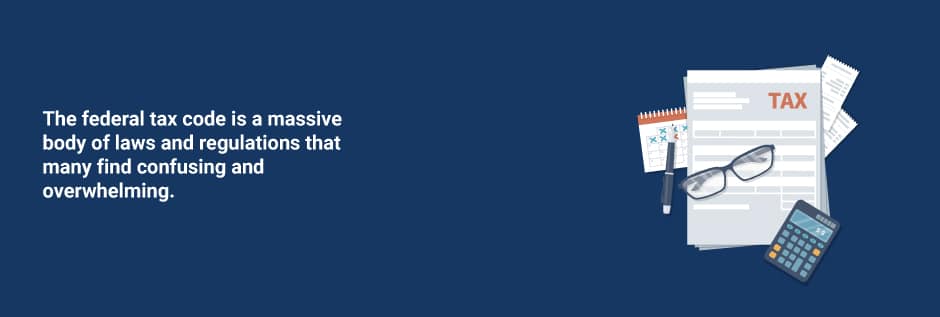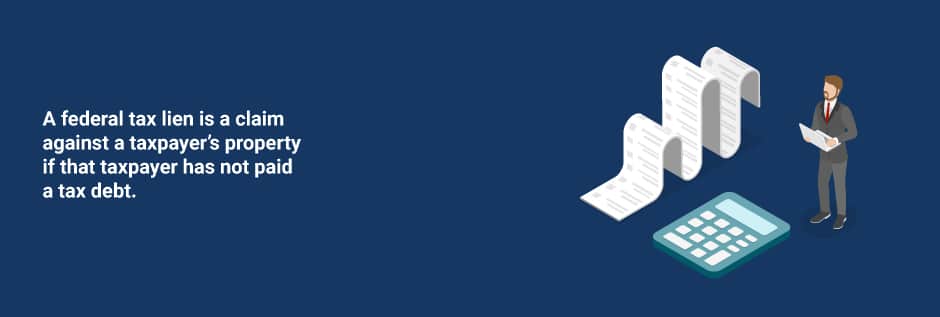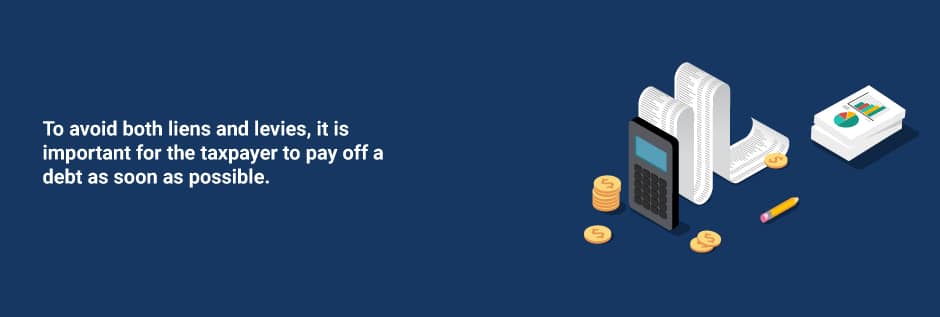The federal tax code is a massive body of laws and regulations that many find confusing and overwhelming. Of course, many professions were created to assist the public with their taxes—accountants and tax attorneys, for example. Many taxpayers get behind on their tax payments, and, in these cases, the IRS may issue a levy or a lien.
Though both levies and liens are implemented by the IRS to satisfy a tax debt, there are differences between the two procedures.

IRS Tax Levies
An IRS levy occurs when the IRS actually seizes property to satisfy a tax debt. There are a few steps that the IRS must take before issuing a levy.
First, the IRS must assess the tax and send you a document called a “Notice and Demand for Payment.” This is a tax bill.
Next, the IRS must show that you never paid the tax bill or never made any arrangements to settle the tax debt.
Finally, the IRS must send a “Final Notice of Intent to Levy” and “Notice of Your Right to a Hearing” no sooner than 30 days before the levy. In some cases, the IRS gives the notice in person. The IRS may also leave the notice at your place of employment or your home. It may also be mailed to you by registered or certified mail with a return receipt requested.
The IRS may levy any property that you have an interest in or own, including:
- Retirement accounts
- Bank accounts
- Rental income
- Accounts receivables
- Wages
- Cash loan value of life insurance policies
- Commissions
- Real property
- Cars
- Boats
The IRS may also levy your state tax refund.
If you receive notice of a tax debt or notice that a levy may be issued against your property, you should consult an experienced tax attorney as soon as possible to protect your property and learn about your legal options.
IRS Tax Liens

A federal tax lien is a claim against a taxpayer’s property if that taxpayer has not paid a tax debt. Instead of seizing the property itself, as with a tax levy, a lien instead establishes an interest in the taxpayer’s property.
The IRS may issue a lien after:
- The IRS assesses the taxpayer’s liability;
- The IRS sends a “Notice and Demand for Payment”; and
- The taxpayer fails to pay the tax debt.
Once the lien has been established, the IRS also files a “Notice of Federal Tax Lien” that lets creditors know that the IRS has an interest in the property.
A federal tax lien may have several different impacts on your life. For example, the lien is attached to all of the assets you own, as well as any assets you acquire while the lien is in place. Federal tax liens may also attach to your business property.
Federal tax liens may also impede your ability to obtain credit or loans. If you file for bankruptcy, the lien may not be released.
If you have received notice of a lien from the IRS, do not ignore it. Instead, make an appointment to speak with an attorney experienced in tax debt matters.

To avoid both liens and levies, it is important for the taxpayer to pay off a debt as soon as possible. If paying off the debt is not possible, the IRS offers other options. For example, the taxpayer may make monthly payments, may be able to settle the debt for less than the full tax debt or may seek an extension on the payment deadline.
At RJS Law, We Help Clients with Tax Matters of All Types
The tax attorneys at RJS Law have been recognized throughout the state of California for their dedication to their clients. With offices in San Diego, Orange County, and Los Angeles, we are prepared to help you with your case. To schedule a free consultation, contact us today.

Leave a Reply